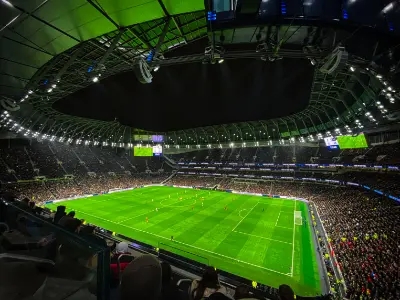Copa America, South America's premier football tournament, is a time-honoured event that symbolises the rich history and intense passion of football on the continent. Organised by the South American Football Confederation (CONMEBOL), the tournament not only showcases the talent of the continent's best footballers, but also celebrates the vibrant culture and deep love of football.
Origin and evolution
The Copa America was first held in Argentina in 1916, making it the world's oldest international continental football tournament. Originally known as the South American Championship, it featured just four teams: Argentina, Brazil, Chile and Uruguay. Over the decades, the tournament has expanded and evolved, reflecting the growing popularity and competitiveness of football in the region.
Initially, the tournament was held irregularly, but since 1987 it has become more regular, usually every four years. The current Copa America features ten teams from CONMEBOL, with two additional teams invited to participate from other confederations, broadening its appeal and scope.
Legendary moments and iconic players
The Copa America has been the stage for many memorable moments and legendary players who have left an indelible mark on the world of football. The first champions, Uruguay, are the overwhelming favorites with a record 15 victories, followed by Argentina. Brazil, with its talent and football philosophy, also boasts numerous titles and is a formidable rival for the best talent in the world of football.
Players such as Pele, Diego Maradona, Lionel Messi and Neymar have graced the Copa America, dazzling fans with their incredible skills and contributing to the success of their national teams. The tournament not only serves as a platform for established stars, but also a competition for up-and-coming talent, helping to develop the next generation of football stars.
Cultural significance
Football in South America is more than just a sport: it's a cultural phenomenon that unites communities and inflames national pride. The Copa America embodies this spirit, with matches that showcase vibrant fan support, colorful traditions and national identity.
The intense rivalries between the teams, especially the legendary match between Argentina and Brazil, add to the allure of the tournament: these matches are more than just sporting events; they are cultural spectacles that capture the hearts of millions of people across the continent and beyond.
Recent trends and the future
In recent years, the Copa America has continued to evolve, incorporating modern elements while retaining its traditional appeal. The 2021 tournament, held in Brazil, faced logistical challenges due to the COVID-19 pandemic, but managed to showcase the resilience and adaptability of South American football.
The 2024 Copa America kicks off in the United States on Thursday, June 20th, with the final set to take place in Miami, Florida on July 14th. Check out the schedule here. Who will be the players to watch? In addition to long-time fan favorite Lionel Messi, keep an eye out for Endric, a 17-year-old rookie from Brazil who may be on the brink of international stardom.
Conclusion
Copa America is more than just a soccer tournament. It is a testament to South America's long-standing love affair with soccer. Rich history, iconic moments and cultural significance make it a cherished event on the global sporting calendar. As it continues to evolve, Copa America remains a symbol of the passion, skill and unity of soccer in South America and around the world.

